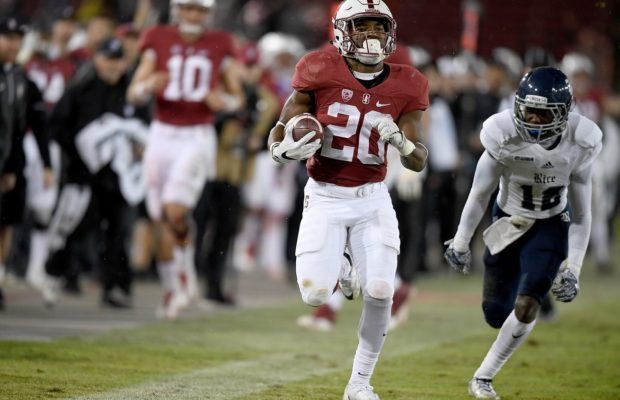Stanford, Rice will open 2017 season in Sydney, Australia

ESPN’s Brett McMurphy has reported that a source told him that Stanford University and Rice University will open their 2017 season in Sydney, Australia.
Stanford-Rice will open 2017 season in Australia, pending NCAA approval in January, a source told @ESPN. 1st reported by @wilnerhotline
— Brett McMurphy (@McMurphyESPN) December 11, 2016
The game was originally scheduled for Sept. 2, 2017, at Rice, but it will be played in late August in Australia pending NCAA approval in January.
College football in Australia is still a relatively new thing. Earlier this season Cal and Hawaii opened their 2016 seasons from ANZ Stadium in Sydney, and the game had a reported attendance of 61,247.
There’s a number of legitimate reasons to play in Sydney — here’s an excerpt from the SB Nation college football in Australia explainer.
1. To re-introduce the sport to the country
Bringing the sport to Australia was a labor of love for Colin Scotts. Scotts was the first Australian football player to earn a scholarship in the States when he turned his rugby union skill into a full ride at Hawaii in 1983. Now, he’s the game’s ambassador. The former defensive lineman is hoping this weekend’s game can add a new level of exposure beyond what expanded cable packages have added in the past two decades.
There has been an eruption in the last five to ten years — Nintendo, watching Fox Sports, and social media have absolutely captivated the imagination of Australians. We’re absolutely eating and breathing NBA, NFL, you name it. We’ve just fallen in love with American culture and American sports. And the world has shrunk. We really believe with the wave of interest in Gridiron, we can put on a great show. Starting with a college game and hopefully make it into an annual event, or at least bring the NFL down. It’s exciting.
Friday’s contest isn’t the first to take place outside of the United States. Harvard used to frequent Montreal in the 1870s to best McGill University in a series of games that often had 1-0 finals. LSU and Tulane took trips to Havana to play Cuban teams in the early 1900s. In 1976, Texas A&M-Kingsville and Henderson State introduced American football to Europe in a tour where the two teams played each other five times in a single month (Kingsville won all five). Over more than 140 years, countries ranging from Italy to Ireland to Tanzania all got in on the action.
The showdown between Cal and Hawaii, however, will only be the third time the game’s been played in a land Down Under. It will be the sport’s first trip to Sydney. Some locals are as curious about the sport as they are confused. As James Dator points out, massive college athletic programs and the culture they breed are foreign to Australia.
Bringing Cal and Hawaii to town will allow local access to ease into the sport in a way more dedicated fanbases of Notre Dame or Penn State may not have. Two teams used to playing the late game during east coast broadcasts will go even further on Friday when they kick off the Sydney Cup a full day ahead of the Eastern Standard Time.
2. To get two college football programs PAID
Of course, Friday’s matchup isn’t just a boon for Australia. There’s plenty of value for the two competing programs and college football as a whole. California is guaranteed a seven-figure paycheck to help ease the pain of a 28-hour round trip voyage. Hawaii is also expected to turn a profit on the experience.
Stanford and Rice played this season at the end of the year, with Rice traveling to Stanford to close out the regular season. The game this year was originally slated for the beginning of the year until Stanford scheduled its Friday night opener against Kansas State for Week 1. Given the opponent to wrap up Stanford’s regular season, the crowd turnout wasn’t pretty.
Senior Night ‘Crowd’ for Stanford’s final home game against Rice in the rain. pic.twitter.com/5ZeNLOAis7
— RedditCFB (@RedditCFB) November 27, 2016
If ANZ Stadium brings the same crowd it did last year, hopefully the crowd will look a lot better than this year’s Rice-Stanford game.